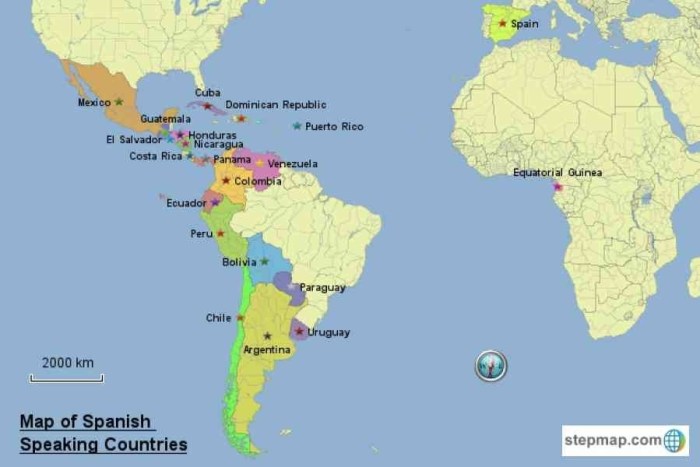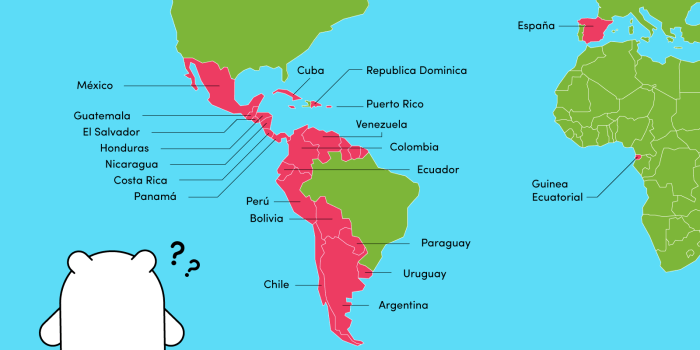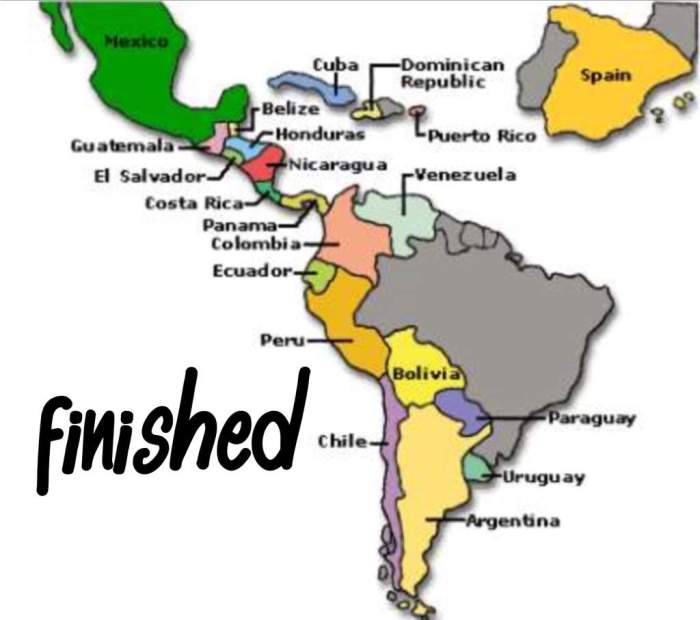En muchos países hispanos el gobierno ofrece servicios médicos – In many Hispanic countries, the government plays a significant role in providing healthcare services, shaping the healthcare landscape and impacting the well-being of their populations.
This article delves into the diverse healthcare systems found in Hispanic countries, examining their common characteristics, the range of services offered, funding mechanisms, accessibility, quality outcomes, challenges, and opportunities for improvement.
Healthcare Systems in Hispanic Countries
Healthcare systems in Hispanic countries vary greatly, but they share some common characteristics. First, most Hispanic countries have universal healthcare systems, which means that all citizens have access to basic healthcare services regardless of their income or employment status. Second, the government plays a major role in providing healthcare services, either directly or through subsidies to private providers.
Third, healthcare spending is relatively low in Hispanic countries compared to other developed countries.
Examples of Universal Healthcare Systems
Some examples of countries with universal healthcare systems in Hispanic countries include Argentina, Brazil, Chile, and Mexico. In these countries, all citizens are entitled to free or low-cost healthcare services, including primary care, specialist care, and emergency services.
Examples of Private Healthcare Systems, En muchos países hispanos el gobierno ofrece servicios médicos
Some examples of countries with private healthcare systems in Hispanic countries include Colombia, Costa Rica, and Peru. In these countries, citizens must purchase health insurance in order to access healthcare services. However, the government often provides subsidies to low-income individuals and families to help them afford health insurance.
Role of the Government
The government plays a major role in providing healthcare services in Hispanic countries. In most countries, the government is responsible for providing primary care services, such as vaccinations, checkups, and screenings. The government also provides subsidies to private providers to help them offer affordable healthcare services to low-income individuals and families.
Types of Healthcare Services Offered: En Muchos Países Hispanos El Gobierno Ofrece Servicios Médicos

The range of healthcare services offered by governments in Hispanic countries varies depending on the country’s healthcare system. However, most countries offer a comprehensive range of services, including:
- Primary care: This includes services such as vaccinations, checkups, screenings, and treatment for common illnesses and injuries.
- Specialist care: This includes services such as surgery, cancer treatment, and mental health care.
- Emergency services: This includes services such as emergency medical care, trauma care, and disaster relief.
- Preventative care: This includes services such as health education, nutrition counseling, and smoking cessation programs.
Funding and Accessibility
Healthcare services in Hispanic countries are funded through a variety of sources, including taxes, insurance, and out-of-pocket payments. In countries with universal healthcare systems, the government is the primary source of funding for healthcare services. In countries with private healthcare systems, individuals and families must purchase health insurance in order to access healthcare services.
However, the government often provides subsidies to low-income individuals and families to help them afford health insurance.
The accessibility of healthcare services varies depending on the country’s healthcare system and the individual’s income and location. In countries with universal healthcare systems, all citizens have access to basic healthcare services regardless of their income or employment status. However, there may be waiting lists for certain services, such as specialist care and elective surgeries.
In countries with private healthcare systems, individuals and families must purchase health insurance in order to access healthcare services. The cost of health insurance varies depending on the type of coverage and the individual’s income and location. Low-income individuals and families may be eligible for government subsidies to help them afford health insurance.
Quality and Outcomes

The quality of healthcare services in Hispanic countries varies depending on the country’s healthcare system and the individual’s income and location. In general, the quality of healthcare services is lower in Hispanic countries than in other developed countries. This is due to a number of factors, including limited resources, workforce shortages, and health disparities.
However, there are a number of initiatives underway to improve the quality of healthcare services in Hispanic countries. These initiatives include increasing funding for healthcare, training more healthcare workers, and implementing new technologies.
Challenges and Opportunities

Healthcare systems in Hispanic countries face a number of challenges, including limited resources, workforce shortages, and health disparities. However, there are also a number of opportunities for improving healthcare services in Hispanic countries. These opportunities include increasing funding for healthcare, training more healthcare workers, and implementing new technologies.
By addressing the challenges and seizing the opportunities, Hispanic countries can improve the quality of healthcare services for their citizens.
Detailed FAQs
How does government funding impact healthcare accessibility in Hispanic countries?
Government funding plays a vital role in ensuring healthcare accessibility by providing financial support for healthcare services, infrastructure, and personnel. It enables governments to offer universal healthcare coverage, reduce out-of-pocket expenses for patients, and improve access to primary and specialized care.
What are the common challenges faced by healthcare systems in Hispanic countries?
Healthcare systems in Hispanic countries often face challenges such as limited resources, workforce shortages, health disparities, and fragmented care. These challenges can hinder access to quality healthcare, particularly for vulnerable populations, and contribute to health inequities.
How can technology contribute to improving healthcare services in Hispanic countries?
Technology can play a significant role in improving healthcare services by enhancing communication between healthcare providers and patients, facilitating remote consultations, providing access to health information, and supporting disease surveillance and prevention efforts.